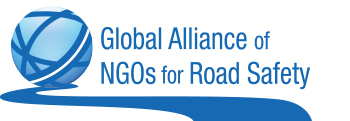Bangladesh NGOs Network for Radio and Communication (BNNRC) has joined the Global Alliance of NGOs for Road Safety as a member organization from Bangladesh. https://www.bnnrc.net
BNNRC has been implementing the project about Building Media Professionalism for Road Safety through Constructive Journalism in Bangladesh with support from the Global Health Advocacy Incubator (GHAI) and Global Road Safety Partnership (GRSP).
The Global Alliance of NGOs for Road Safety (the Alliance) is a collection of nongovernmental organizations (NGOs) that implement programs and lobby for road safety initiatives around the world. Our member NGOs are often set up by everyday citizens responding to the needs they see around them. NGOs can fill government gaps by providing immediate solutions, or they can influence decision-making through advocacy and education. They play a vital role in the growing worldwide movement to reduce the devastating effects of traffic injuries. With interventions based on evidence for what works, our NGOs help save lives.
Global Alliance of NGOs for Road Safety (GANRS)’s mission is to unite, empower, and strengthen NGOs to stimulate collaborative advocacy, action, and accountability for road safety and road victims.
The Alliance was established in 2011 by NGO members of the United Nations Road Safety Collaboration (UNRSC) and currently represents more than 300 member NGOs working in road safety from more than 100 countries around the world.
The Alliance was established in response to demand from NGOs worldwide for a forum where they can share knowledge and collectively advocate for road safety and the rights of victims of road traffic crashes. The Alliance provides services to its members in three key areas: 1) networking and sharing, 2) advocacy, and 3) capacity building.
BNNRC’s Mission: is to enable a media literate, informed and participatory society so that the underserved societies can shape their lives and livelihoods through the following: Fostering public debate, media pluralism and democracy using the power of information and communication, Amplifying the voices of vulnerable, marginalized and excluded people in development debates and Working with media and other information stakeholders to support people and communities to bring about positive changes in their lives and livelihoods.


